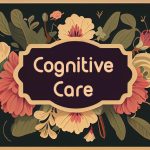Cameron Camp, PhD, Director of Research and Development at Center for Applied Research in Dementia, shares his groundbreaking work with the Post. “After observing the classroom and the students’ behaviors, I asked, ‘Could this be the solution for individuals with dementia?’” by of The Montessori Post –
What is your professional background?
I have a PhD in Experimental Psychology, specializing in cognition and gerontology. My teaching experience at the university level includes courses on adult development and aging, child development, experimental design, program evaluation, statistics, cognitive psychology, introduction to psychology, nonverbal communication, and a range of other subjects.
While in New Orleans, I taught Child Development at the New Orleans Montessori Education Training Center. For their final exams, my Montessori teacher trainees had to present two lessons from a Montessori perspective and then teach these same lessons from the viewpoints of other theorists like Vygotsky (focusing on zone of proximal development and scaffolding) and B.F. Skinner (exploring self-paced individual learning systems).
Additionally, I was a co-author on the pioneering article that established the link between Montessori teaching materials and procedural learning systems for individuals with dementia, Memory training in normal and demented populations: The EIEIO model (1993). I and several colleagues introduced the ideas of using Montessori methods for persons with dementia in our Montessori Life publication of 1996, Montessori methods: Innovative interventions for adults with Alzheimer’s disease.
This approach now is being used internationally, as described in the publication Montessori Life, The Montessori Method applied to persons with dementia: An international perspective (2017). A more detailed account of the development of using the Montessori approach with persons with dementia is seen in this article, Origins of Montessori Programming for Dementia. Non-Pharmacologic Therapies in Dementia, (2010).
Furthermore, my wife, Linda Camp, has over 20 years of experience as a Montessori teacher for children aged 3 years to kindergarten. As her administrative assistant, I had the opportunity to type up her lesson plans and books during her training, which provided me with valuable insights into the Montessori approach. Additionally, two of our children received their education in Montessori schools.
What led you to Montessori?
During graduate school, I spent semester breaks working at a school for children with emotional and developmental disabilities. It was there that I first encountered materials labeled as “Montessori materials,” which I found incredibly intriguing. Following graduate school, I sought to learn more about the Montessori approach, but unfortunately, there were no Montessori schools in the small Kansas town where I lived and worked.
Upon relocating to New Orleans, I was assigned to teach a Child Development class in my first semester, and I discovered a nearby Montessori school whose director agreed to speak to my class.
During her visit, she posed a thought-provoking question to my college students: “Which of you can tell me the shape of one million?” The students were left speechless, but a young boy from the Montessori school confidently answered, “It’s a large cube.” This eye-opening experience spurred me to delve deeper into the Montessori approach.
(This note added by Montessori Dementia Center and is not part of the Dr. Camp interview: For anyone unfamiliar with Montessori, and curious, see explanation of the boy’s response, below.)
When did you first begin to marry Montessori with dementia care?
One of my initial lines of research involved examining how to teach older adults to remember things more effectively using mnemonics such as mental imagery, the method of loci, etc.
Spontaneous Use of Mnemonics by Elderly Individuals (1983), Maintenance and Generalization of Mnemonics for Grocery Shopping by Older Adults (1985). and Remembering mnemonics: A 3 year followup on the effects of mnemonics training in elderly adults (1987).
After relocating to New Orleans, I started working with clients with dementia at an adult day health center and quickly realized that traditional teaching methods involving mental imagery were ineffective for them. It was evident that a completely different approach was necessary. Around the same time, the Montessori teacher visited my Child Development class, which sparked my interest in exploring alternative educational approaches.
This led me to visit the Montessori school with my wife, where we ultimately enrolled our son. I believed that the innovative learning systems and materials used in the school could potentially benefit individuals with dementia. To further explore this idea, I invited a neuropsychologist colleague to visit the Montessori school with me. After observing the classroom and the students’ behaviors, I asked him, “Could this be the solution for individuals with dementia?”
Not only did he agree, but he also decided to enroll his own child in the school.
What have you learned along the way?
The Montessori Method as applied to persons with dementia (or persons without dementia) is not just about learning and education, it is a way of life based on the principles of respect, dignity, and equality. This represents our best hope for the future. I remember giving a three-day training at the University of Montpelier in the south of France, at which a number of students were attending. On the last day, a student raised her hand and said, “Now I understand. This is not about dementia; it is about changing civilization.” I responded, “Yes. Now you understand the deep and true meaning of the Montessori Method.”
What is next for your organization?
We now certify communities as Montessori Inspired Lifestyle® communities at the bronze, silver, and gold levels for Resident Engagement and Staff Engagement. Within these communities, individuals with dementia are empowered to take charge of their own lives. They have the autonomy to choose their preferred activities, how to welcome new members, how to honor those who have passed away, where to go for outings, menu preferences, entertainment options, social causes to support, and more.
Residents actively participate in leading activities, maintaining their living environment, and even assist in interviewing potential staff members. Our training program has been implemented in communities across the majority of states in the U.S. and we also have international partners adopting this approach in Canada, Europe, Australia, New Zealand, Asia, and South America. This approach has extended to independent living communities for older adults, and we utilize Montessori principles to engage staff members in senior care communities.
What else would you like to add?
In our trainings, we note that Maria Montessori would say “The child will lead us.” We tell our trainees, “The residents will lead us. Where will they take us? We do not know. At this time, they do not know. It is life, and it will be an adventure.” Learn more about Dr. Camp’s work.
Published with permission, thanks to Rachel Kincaid. by of The Montessori Post
—————————————————————————————————————————————————————————-
Explanation: Dr. Cameron Camp’s anecdote about the young boy from the Montessori school describing one million as a “large cube” relates to the Montessori method’s concrete, hands-on approach to learning abstract concepts like numbers. In Montessori education, children often work with physical materials that help them visualize and understand mathematical concepts in tangible ways.
For instance, in Montessori classrooms, children use materials like Golden Beads to represent units, tens, hundreds, and thousands. To illustrate very large numbers like one million, the Montessori method uses a cube to represent 1,000,000. This cube is part of the hierarchical materials in the Montessori math curriculum. As the boy in the story understood, each level of numbers builds up geometrically:
- One unit is a single bead.
- Ten units form a bar.
- One hundred units form a square of ten bars.
- One thousand is represented by a cube made of ten squares stacked together.
As you scale these geometric representations, the concept of one million fits naturally as a larger cube, made up of one thousand smaller cubes of a thousand each, reinforcing the abstract concept of large numbers with a concrete, visual representation. This cube visualization aligns with how Montessori math emphasizes structure, spatial reasoning, and patterns, helping students like the one in the story grasp enormous numbers in a way that is intuitive and accessible.
Explanation provided with assistance from ChatGPT





